"Whether the weather be hot,
Or whether the weather be not, We'll weather the weather, Whatever the weather, Whether we like it or not
."
-author unknown
They wouldn't let me board the plane. They asked about a visa for China. I don't have one. "I am not staying in Shanghai", I said. "I am only transferring planes on my way to Cambodia."
I am talking to the agent at the ticket counter for China Airlines. Finally, they agree I do not need a visa for China if I do not leave the airport.
They check my passport for a visa for Cambodia. I tell them I have entered Cambodia twice and always get a 30 day visa on arrival. They go back to their computers and check. By now the managers are involved. They all agree I can get a 30-day visa on arrival at the Cambodian airport.
But, there is another problem. They want to see my flight ticket out of Cambodia before I board the plane. It's called the onward flight ticket, and many countries require you to have one before entering their country by air.
I don't have one
. I don't know how long I want to stay, and when I do leave, I will leave by land, not by plane.
They do not accept that. I must have an airline ticket flying out within 30 days (the length of time my visa will be for).
I say I have entered Cambodia several times and immigration never required an onward ticket. They argue the information they got from Cambodia says I do need one. It takes a while with them running back and forth and consulting a lot.
The problem with the way I travel is that I don't know when I want to leave a country. I might leave before the visa expires, or renew the visa to stay longer. Also, traveling around southeast Asia, I usually will be traveling out of the country overland by train or bus or boat, not flying. But, the onward ticket must be an airline ticket, nothing else.
They come back with printed sheets of paper from Cambodia
. They say I must have an onward ticket or show financial means to be able to leave the country once my visa expires. I have credit cards and cash. What do they want me to show, I ask. They don't ask to see either.
The supervisor leaves again and before long returns with a couple of printed forms. If I will sign these, relieving the airlines of responsibility, they will let me board.
The deal is, if the airlines bring passengers into a country without an onward flight ticket out, the airlines can be fined and are responsible to transport the passenger back to the place they brought them from, at the airlines expense.
So, understandably, the airlines have been enforcing the rule very strictly. When I left Hawaii flying to Japan I had to show an onward flight leaving Japan. I had that, no problem.
The thing is, though, immigration in these countries never ask for the onward flight ticket once you get there
. They just give you the visa and let you through. So, the only problem you have is getting the airline to let you board the plane.
Why do these countries make pointless laws like the onward ticket? It causes headaches for the airlines and the traveler. So, it's pointless to put this requirement on the airlines, when it is never enforced by the country.
Also, all the countries allow you to extend your visa while in their country. So why do you need an onward ticket within the time frame of the original visa? The onward flight ticket would be wasted if you got an extension to the visa. Another example of bureaucracy gone mad.
Finally, after signing the forms accepting all responsibility to enter the country, I am allowed to board the plane out of Japan.
Now they weigh my backpack. It is more than 10 kilograms in weight. I will have to check it
. I have carried it all around the world and never had to check it, but with this China airlines, I will.
The layover in Shainghai was just a couple of hours. Soon I was on my way to Siem Reap, Cambodia.
I told some of the friends I made while in Cambodia a few months ago, that I would try to be there in October to celebrate Ancestors' Day with them. It's called Pchum Ben in Cambodia. It's a Buddhist festival when people pay respect to the spirits of their ancestors and deceased relatives.
The festival lasts for 3 days, but the 15 days leading up to it is when the people practice the custom of "feeding the ancestors".
All the Cambodians that can, go back to their place of birth during this time. This is probably the most important holiday they have. Government offices and a lot of businesses close for several days because so many people travel to their 'homeland'
.
They believe the dead wander the world during this period of time. Many are believed to be in hell paying for their sins. They cannot see the sun and have no food to eat and no clothes to wear.
Phchum Ben is the time when the spirits of the dead relatives can receive food from their living relatives, and get some relief. The people go to the pagoda on this day because they do not want their dead relatives to come for food and them not have some for them. The offering of food is to make their traveling more comfortable.
The gates of hell are believed to open on the main day of this festival. When the gates open, the dead are believed to be very active. This is the reason for the food offerings -- to help them during this busy time.
The Cambodians gather at the temple and throw rice balls into the air and scatter rice in the open fields for their dead parents, brothers or sisters or other relatives
.
The spirits will go to 7 different pagodas looking for their living relatives. If they cannot find them, it is believed the spirits will curse the living relatives, because they cannot eat food offered by anyone other than their living relatives.
Some of these ghosts can end their time in this purgatory of hell. Others are believed to leave it temporarily, but have to return to endure more suffering. The people believed to be in heaven rather than hell also benefit from the ceremonies.
The monks chant all night long on the one night the gates of hell are believed to open and release the people.
On the other days of the month of this festival, the Cambodian people take food to the monks at the temples. Each night food has to be taken to a different temple. A temple and the monks there can only receive food one night during the month.
But, I have not come for the religious part of the festival
. Like many holidays in Cambodia, this one has turned into a month-long celebration with boat parades going down the river and boat races and other water activities, I am told.
Somnang, one of my Cambodian friends I met last time I was here, made the 4 hour trip from Battambang to Siem Reap to meet me the next day. He contacted one of his friends and we all met for dinner.
We learned his friend is to be married in one month. The three of us and his fiancee spent the next few days traveling around Siem Reap, viewing all the flooding in the streets and homes. This month is the end of the monsoon season in Asia and there has been a lot of flooding in Cambodia and Thailand.
One day we took a tuk tuk out to the dam. We bought a lot of food from the sellers on the bank at the dam, and took it with us on the ferry boat. There was some chicken and rice and vegetables, along with crickets and something that looked like grub worms.
The ferry dropped us off at some bamboo rafts in the lake
. We ate on the bamboo raft and lounged the day away in the hammocks. There were a lot of these rafts tied together and by afternoon they were full of Cambodians. I was the only foreigner.
The dam turned out to be the same one my Portugese friend, Antonio, and I bicycled to the first time I was in Siem Reap earlier this year. It looks a lot different now, though, with all the high water.
For several days we all traveled by tuk tuk and motorbikes around Siem Reap. Flooding was everywhere.
A few days later Somnang and I made the 4 hour bus ride to Battambang.
Feeding the Dead (Cambodia)
Saturday, October 05, 2013
 Siem Reap, Cambodia
Siem Reap, Cambodia
Other Entries
-
95"Don't Worry About It"
Sep 1223 days prior Honolulu, United Statesphoto_camera135videocam 0comment 0
Honolulu, United Statesphoto_camera135videocam 0comment 0 -
96It's Friday the 13th - Does That Matter?
Sep 1322 days prior Honolulu, United Statesphoto_camera55videocam 3comment 0
Honolulu, United Statesphoto_camera55videocam 3comment 0 -
97..........And The Skipper Too
Sep 1421 days prior Waikiki, United Statesphoto_camera73videocam 10comment 0
Waikiki, United Statesphoto_camera73videocam 10comment 0 -
98As The Sun Sets
Sep 1718 days prior Maui, United Statesphoto_camera101videocam 4comment 0
Maui, United Statesphoto_camera101videocam 4comment 0 -
99THE BED!
Sep 1916 days prior Tokyo, Japanphoto_camera10videocam 0comment 2
Tokyo, Japanphoto_camera10videocam 0comment 2 -
100First Day in Tokyo
Sep 1916 days prior Tokyo, Japanphoto_camera33videocam 1comment 3
Tokyo, Japanphoto_camera33videocam 1comment 3 -
101Iranians Like America
Sep 2015 days prior Tokyo, Japanphoto_camera68videocam 2comment 2
Tokyo, Japanphoto_camera68videocam 2comment 2 -
102A Young Woman Passes Me A Note
Sep 2114 days prior Nikko, Japanphoto_camera121videocam 0comment 2
Nikko, Japanphoto_camera121videocam 0comment 2 -
103I'm Being Followed . . . and I Feel Uncomfortable
Sep 2213 days prior Nikko, Japanphoto_camera54videocam 2comment 3
Nikko, Japanphoto_camera54videocam 2comment 3 -
104Faster Than A Speeding Bullet (Japan)
Sep 278 days prior Kyoto, Japanphoto_camera34videocam 2comment 2
Kyoto, Japanphoto_camera34videocam 2comment 2 -
105The White Deer
Sep 287 days prior Nara, Japanphoto_camera67videocam 0comment 0
Nara, Japanphoto_camera67videocam 0comment 0 -
106The Thousands of Gates (Japan)
Sep 296 days prior Kyoto, Japanphoto_camera101videocam 1comment 0
Kyoto, Japanphoto_camera101videocam 1comment 0 -
107Burning Flesh -Part I (Japan)
Sep 305 days prior Hiroshima, Japanphoto_camera43videocam 1comment 0
Hiroshima, Japanphoto_camera43videocam 1comment 0 -
108Burning Flesh - Part 2 (Japan)
Oct 014 days prior Hiroshima, Japanphoto_camera40videocam 0comment 0
Hiroshima, Japanphoto_camera40videocam 0comment 0 -
109Bathing With Naked Men (Japan)
Oct 023 days prior Miyajima, Japanphoto_camera52videocam 0comment 2
Miyajima, Japanphoto_camera52videocam 0comment 2 -
110Don't Look Him In The Eyes (Japan)
Oct 032 days prior Arashiyama, Japanphoto_camera166videocam 5comment 0
Arashiyama, Japanphoto_camera166videocam 5comment 0 -
111The Land of the Rising Sun (Japan)
Oct 041 day prior Shanghai, Chinaphoto_camera50videocam 1comment 0
Shanghai, Chinaphoto_camera50videocam 1comment 0 -
112Feeding the Dead (Cambodia)
Oct 05 Siem Reap, Cambodiaphoto_camera35videocam 3comment 0
Siem Reap, Cambodiaphoto_camera35videocam 3comment 0 -
113My Chair is Under Water (Cambodia)
Oct 105 days later Battambang Province, Cambodiaphoto_camera117videocam 3comment 0
Battambang Province, Cambodiaphoto_camera117videocam 3comment 0 -
114It's Not The Big Top (Cambodia)
Oct 2419 days later Battambang Province, Cambodiaphoto_camera50videocam 4comment 0
Battambang Province, Cambodiaphoto_camera50videocam 4comment 0 -
115Who Stole My Sandals? (Cambodia)
Oct 2621 days later Battambang Province, Cambodiaphoto_camera88videocam 1comment 0
Battambang Province, Cambodiaphoto_camera88videocam 1comment 0 -
116Fire In The Sky (Thailand)
Nov 1642 days later Pattaya, Thailandphoto_camera60videocam 5comment 2
Pattaya, Thailandphoto_camera60videocam 5comment 2 -
117Happy Holidays (Vietnam)
Nov 2551 days later Hanoi, Vietnamphoto_camera1videocam 0comment 0
Hanoi, Vietnamphoto_camera1videocam 0comment 0 -
118The Hands from Hell (Thailand)
Nov 2652 days later Chiang Rai Province, Thailandphoto_camera91videocam 3comment 0
Chiang Rai Province, Thailandphoto_camera91videocam 3comment 0 -
119Black House Chiang Rai (Thailand)
Nov 2753 days later Chiang Rai, Thailandphoto_camera199videocam 1comment 0
Chiang Rai, Thailandphoto_camera199videocam 1comment 0 -
120The Clock (Thailand)
Nov 2854 days later Chiang Rai Province, Thailandphoto_camera58videocam 1comment 0
Chiang Rai Province, Thailandphoto_camera58videocam 1comment 0 -
121The Epic Journey (Laos)
Nov 2955 days later Chiang Khong, Thailandphoto_camera70videocam 2comment 0
Chiang Khong, Thailandphoto_camera70videocam 2comment 0 -
122Shipwreck on the Mekong (Laos)
Nov 3056 days later Huay Xai, Laosphoto_camera70videocam 4comment 2
Huay Xai, Laosphoto_camera70videocam 4comment 2 -
123Please Cover Your Body - (Laos)
Dec 0157 days later Luang Prabang, Laosphoto_camera141videocam 0comment 0
Luang Prabang, Laosphoto_camera141videocam 0comment 0 -
124Discovering Luang Prabang (Laos)
Dec 0258 days later Luang Prabang, Laosphoto_camera136videocam 0comment 0
Luang Prabang, Laosphoto_camera136videocam 0comment 0 -
125Waterfall on the Mekong (Laos)
Dec 0359 days later Luang Prabang, Laosphoto_camera57videocam 0comment 2
Luang Prabang, Laosphoto_camera57videocam 0comment 2 -
126Rudeness at Dawn (Laos)
Dec 0460 days later Luang Prabang, Laosphoto_camera104videocam 1comment 0
Luang Prabang, Laosphoto_camera104videocam 1comment 0 -
127The Vertical Runway (Laos)
Dec 1066 days later Vientiane, Laosphoto_camera110videocam 1comment 0
Vientiane, Laosphoto_camera110videocam 1comment 0 -
128The Stranger in my Bed (Laos)
Dec 1268 days later Phonsavan, Laosphoto_camera129videocam 1comment 0
Phonsavan, Laosphoto_camera129videocam 1comment 0 -
129Detained by the Vietnamese Police (Vietnam)
Dec 1672 days later Hanoi, Vietnamphoto_camera24videocam 0comment 0
Hanoi, Vietnamphoto_camera24videocam 0comment 0 -
130The Strangest Thing I Have Ever Heard (Vietnam)
Dec 1874 days later Hanoi, Vietnamphoto_camera103videocam 1comment 0
Hanoi, Vietnamphoto_camera103videocam 1comment 0

 Siem Reap, Cambodia
Siem Reap, Cambodia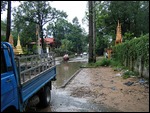
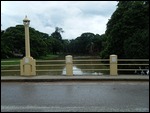
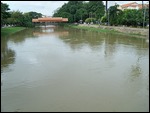
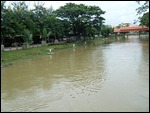
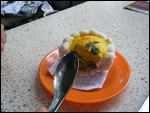
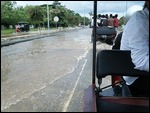
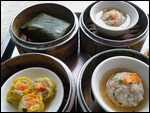
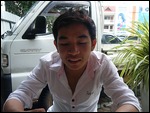
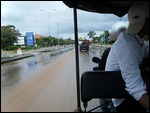







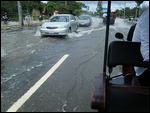
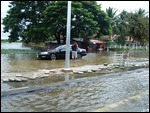
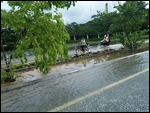
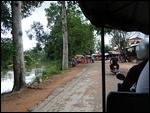
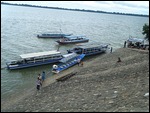
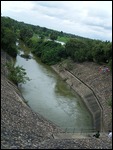
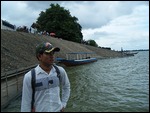
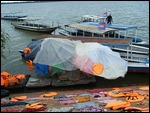
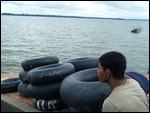
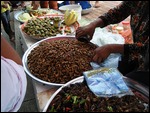
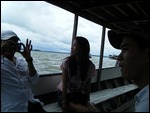
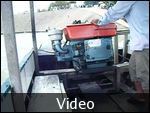
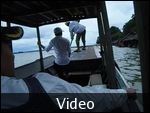
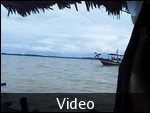
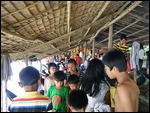
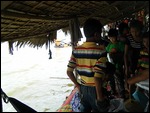
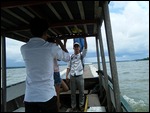
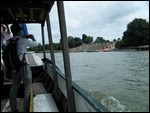
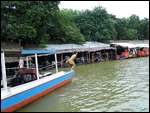
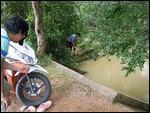
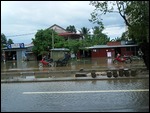
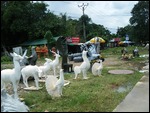
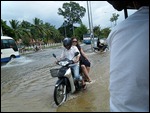
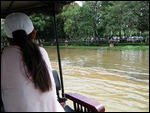
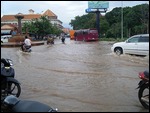
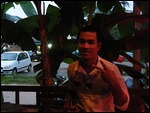
2025-05-22